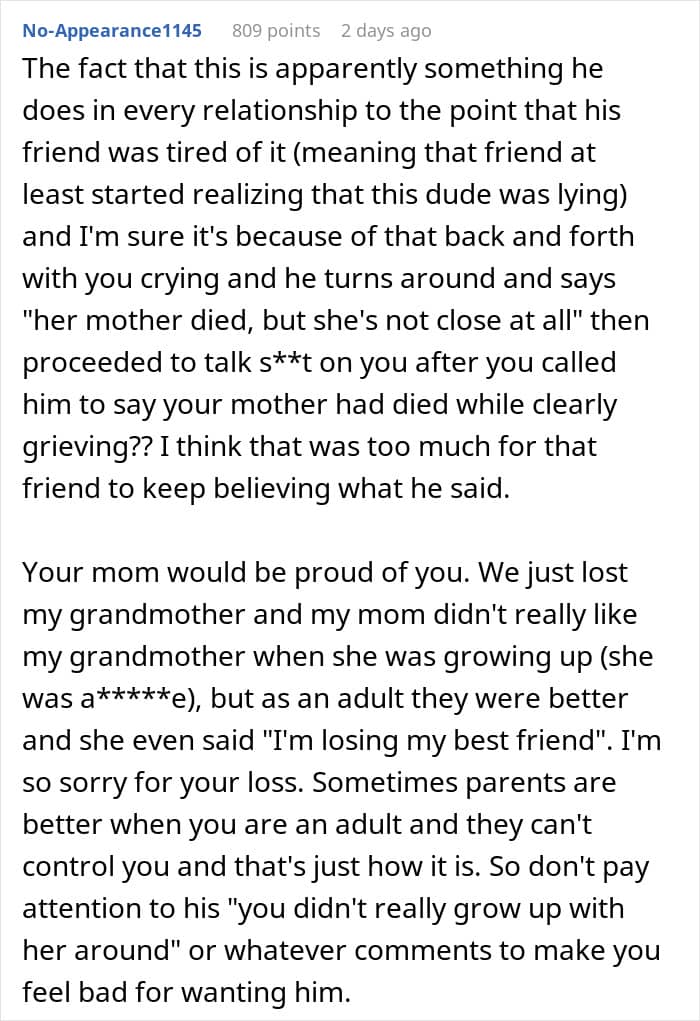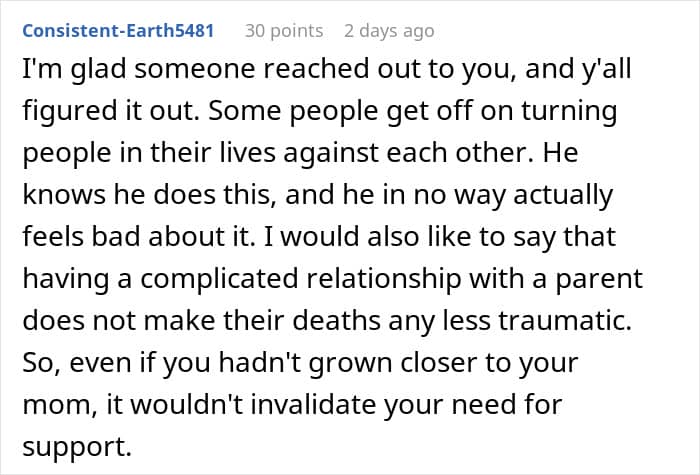Your partner should be the first person you can turn to when you need real support.
That’s what this young woman expected when she learned her mother had passed away. But when she reached out to her boyfriend for comfort, he was in the middle of a night out with friends and refused to cut it short, insisting he only gets to see them once a month.
Left heartbroken and alone on one of the hardest nights of her life, she turned to Reddit for advice. In doing so, she uncovered an even more shocking truth that revealed his true colors.
RELATED:After finding out her mother had passed away, the woman asked her boyfriend to come home and be there for her

He refused, saying he had plans with friends
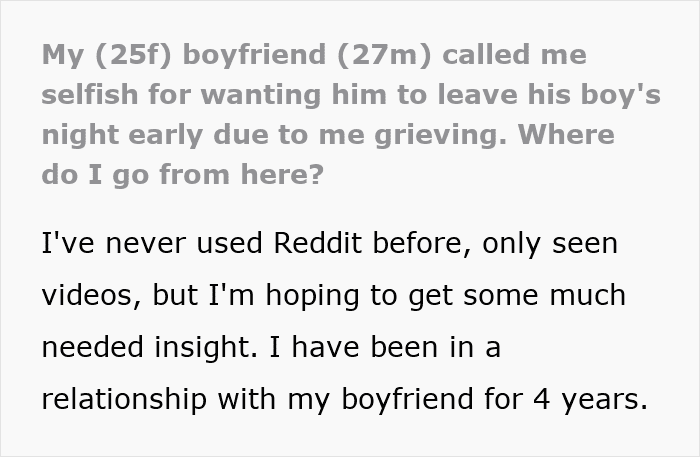

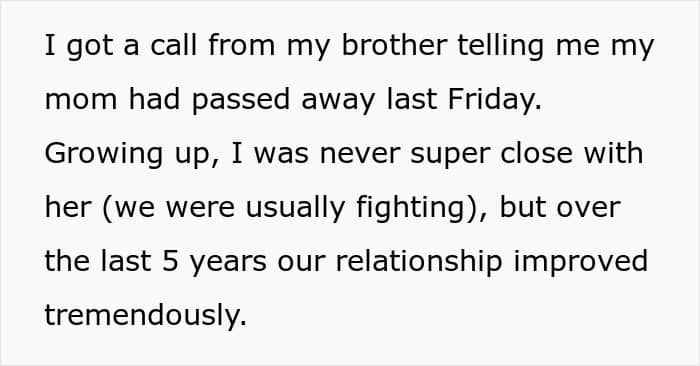

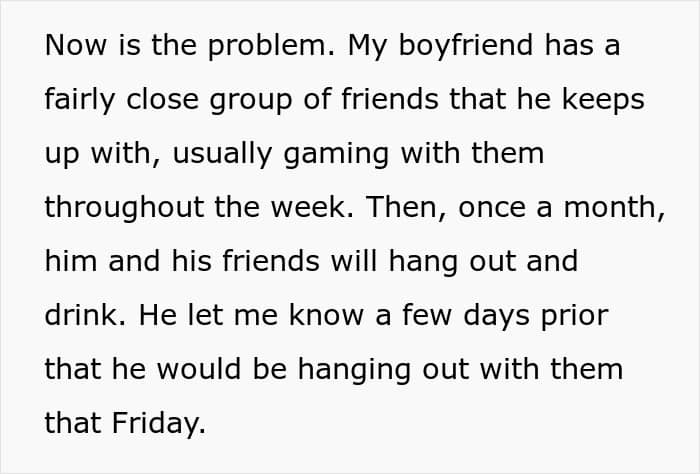
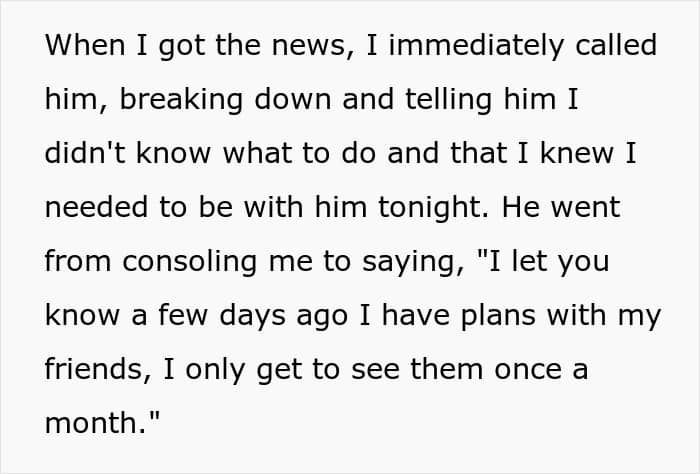


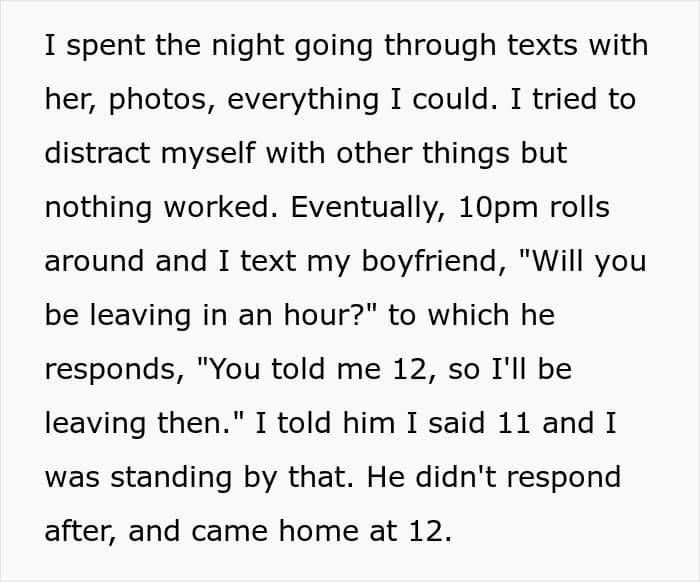
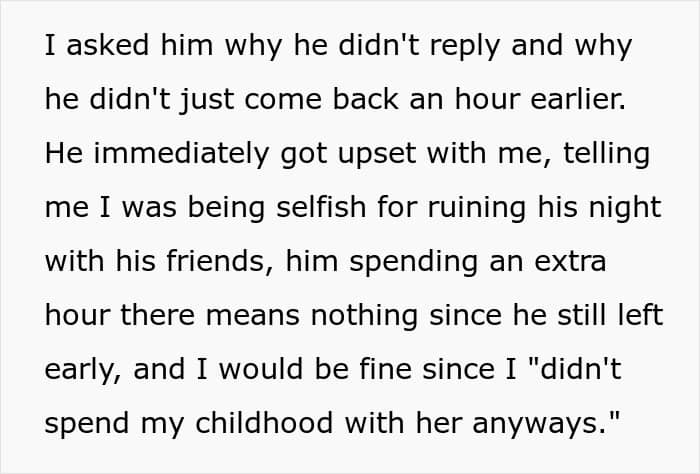


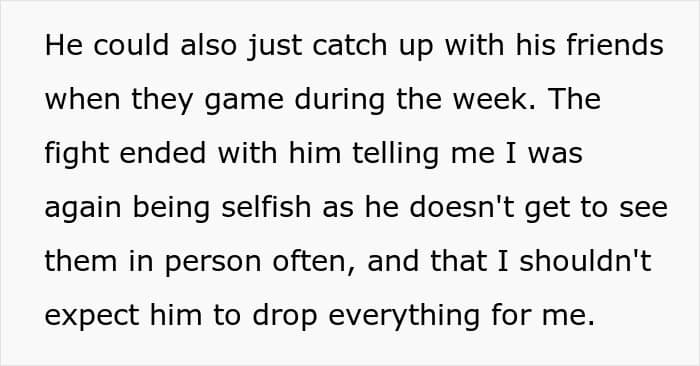

Image source: ThrowRAohdeerest
How to support a grieving partner

When someone you love is grieving, it can be hard to know how to help. You might worry about saying the wrong thing, making them feel worse, or even intruding. Sometimes it feels like nothing you do will be enough. And if your partner doesn’t respond to comfort in the way you expected, it can leave you feeling awkward or unsure of what to do next.
Still, your presence matters more than you might realize. Research from the UK shows that 70% of people who experienced a close bereavement felt they couldn’t access the support they needed. Being there for your partner, even in small ways, can make a world of difference.
According to Relate, a charity offering relationship advice, helping someone through grief requires flexibility. Remember that everyone has different needs and ways of responding, so try to adjust to them accordingly.
Ask your partner what they need in the moment. If they want space, give it, even if it makes you feel shut out. If they want you more involved, be present, offer comfort without judgment, and let them share whatever they’re feeling.
HelpGuide.org notes that simply listening can mean more than you realize. Many grieving people worry they’re a burden, or they sense discomfort when others bring up the person who passed away. You can help by opening the door to those conversations.
One approach I once came across, and have found truly meaningful, is to ask if they’d like to talk about a favorite memory of the person they’ve lost. If they say no, respect that—but if they open up, it can be incredibly healing.
Personally, I love reminiscing about my late grandparents. Talking about them makes me feel as though they live on through those stories.
It’s just as important to know what not to say. Many phrases people use with grieving loved ones come from a place of good intentions, but can end up sounding dismissive or even hurtful. Here are a few to avoid:
“Look at what you have to be thankful for.” They already know what they have, but in this moment, gratitude isn’t the priority.
“They’re in a better place now.” Unless they ask for your beliefs, keep them to yourself.
“It’s time to move on.” Grief doesn’t follow a schedule, and moving forward doesn’t mean forgetting.
Also, don’t make them feel guilty for finding happiness here and there.
Grief isn’t constant, it ebbs and flows. Some people function normally at first, only to be hit harder months later. Others experience intense grief right away with brief periods of normalcy. When lighter moments come, embrace them. Suggest doing something enjoyable together, like going for a walk or cooking a favorite meal.
What you should never do is ignore them or choose social plans over being there when they clearly need you. In a time of loss, your support means everything.
Readers showed strong support for the author, calling the boyfriend’s behavior was unacceptable
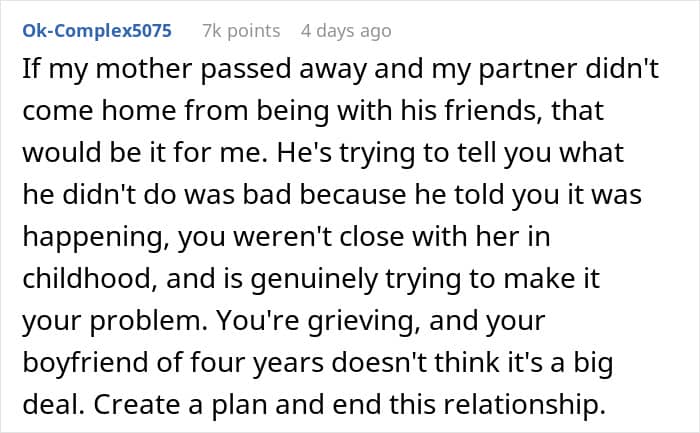


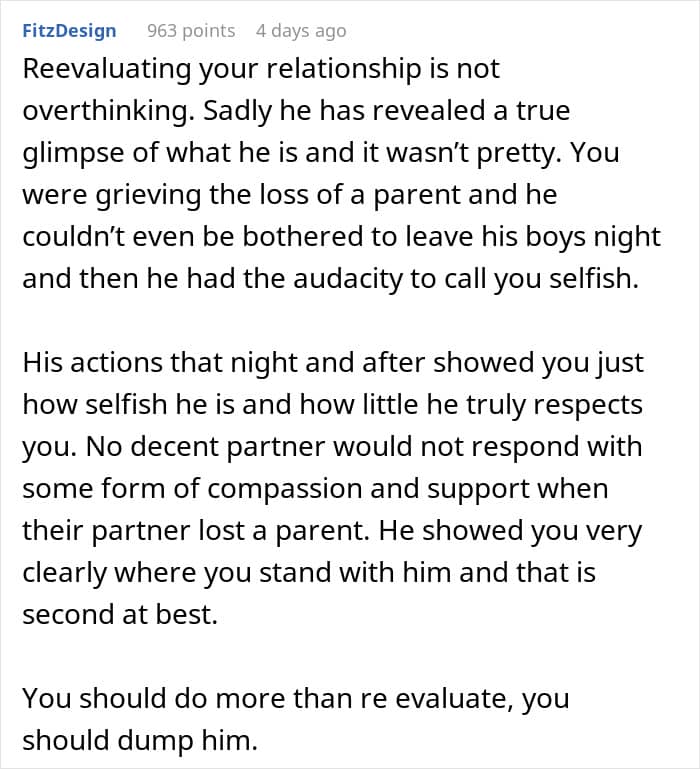

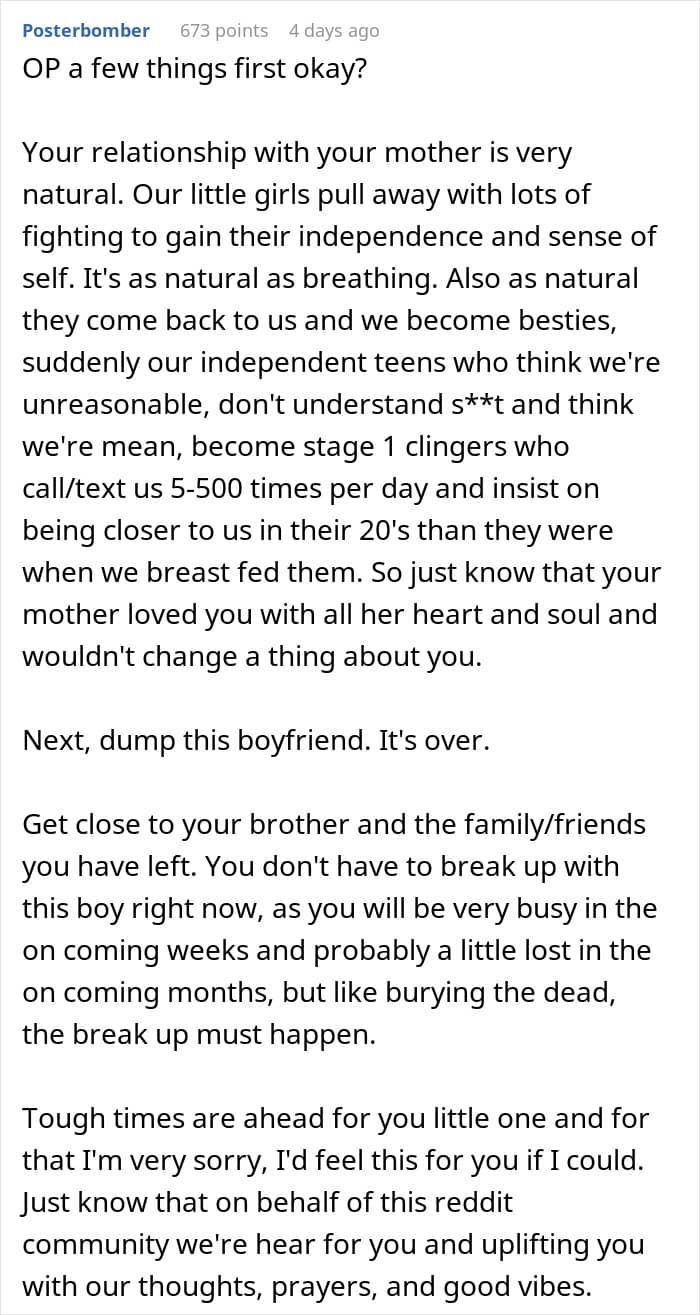

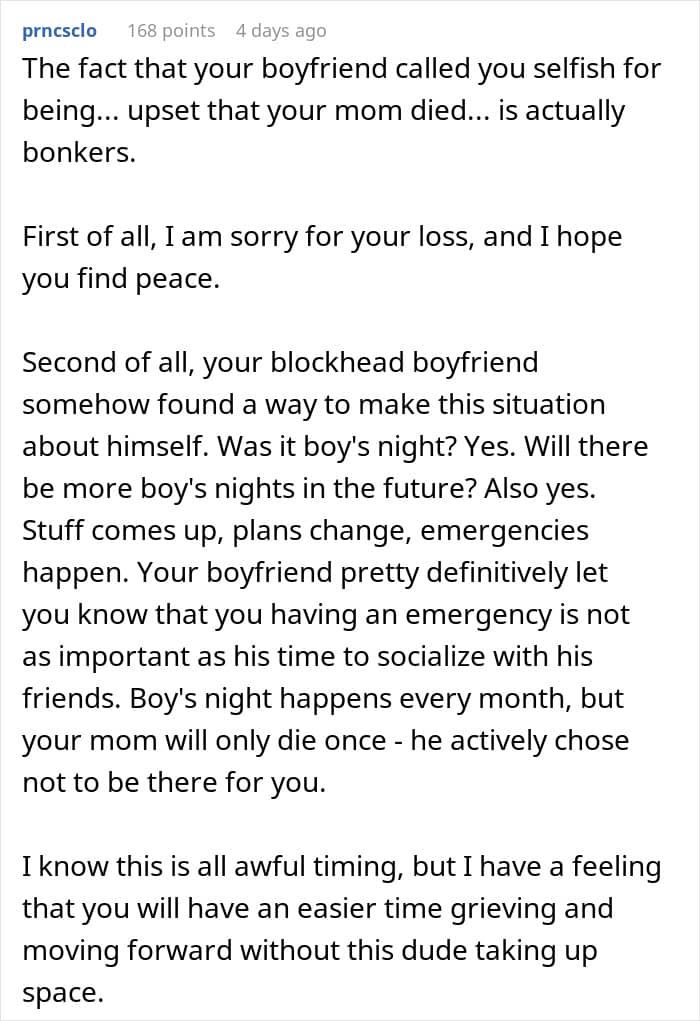

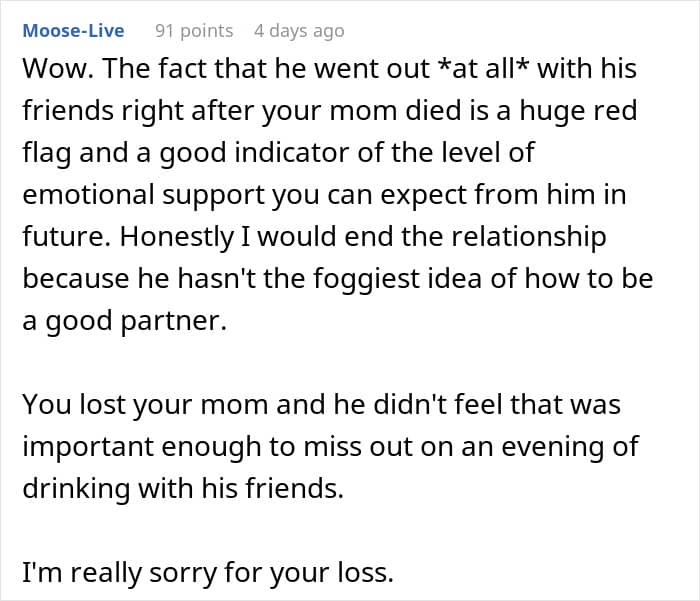

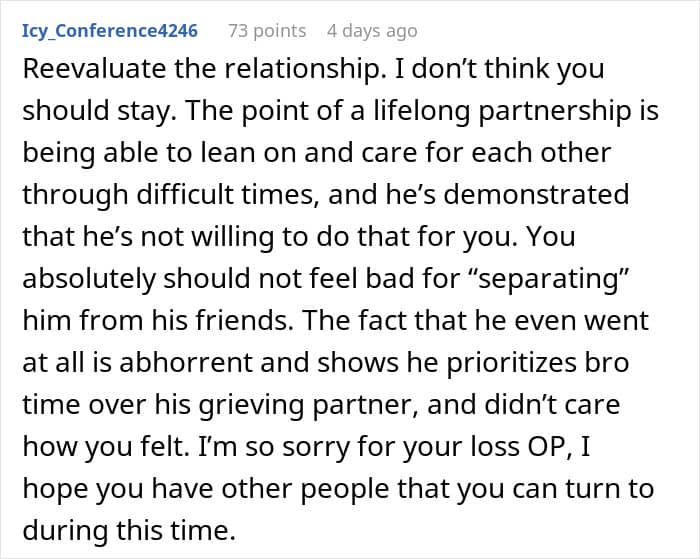




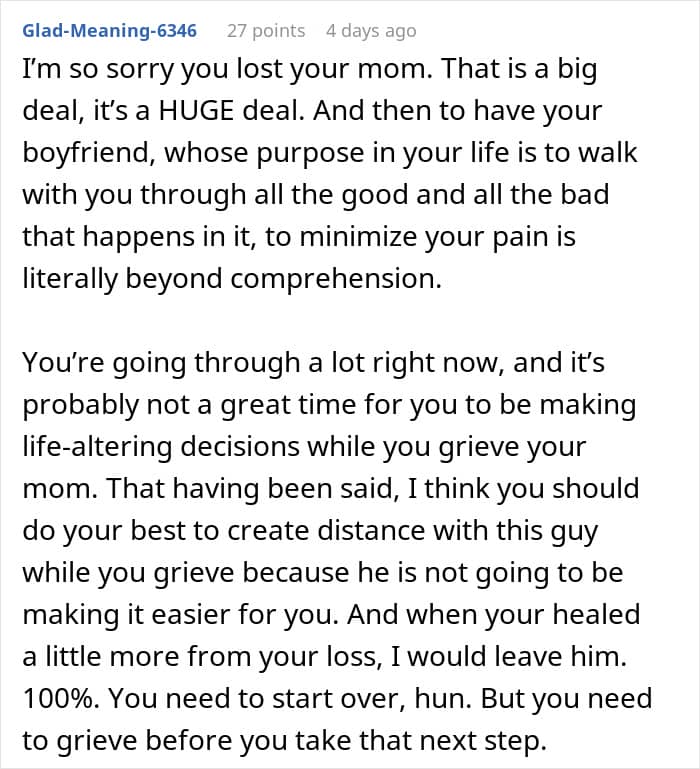













In a later update, she revealed he had been doing even worse things behind her back


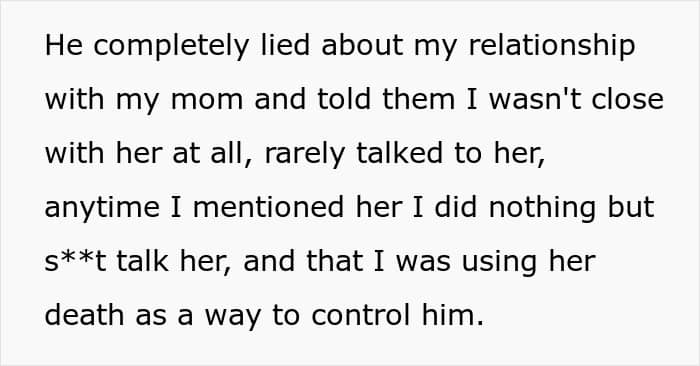




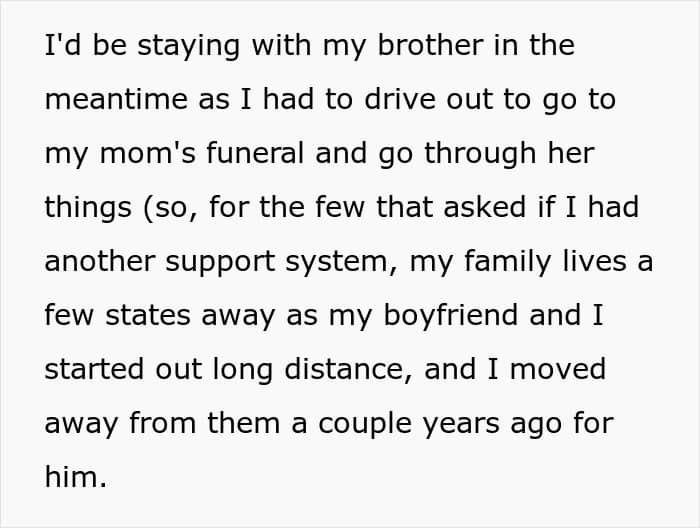



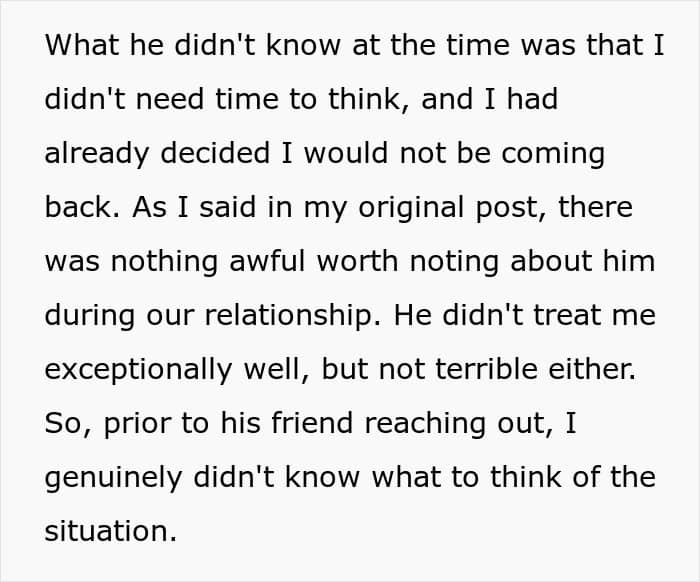

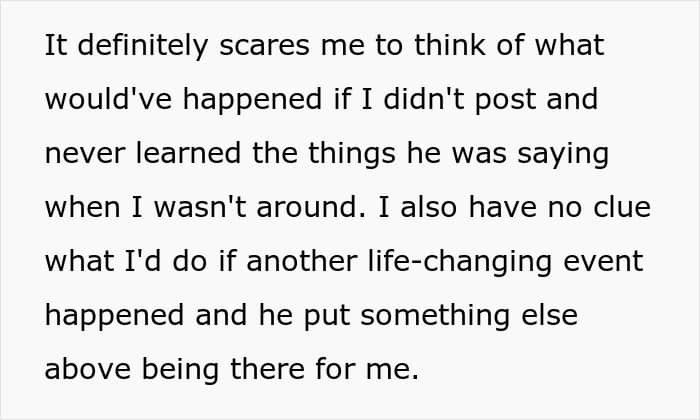



Image source: ThrowRAohdeerest
Readers were proud of how she handled the situation and stood up for herself

